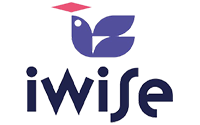The iWISE Olympiad helps students improve their skills in both mathematics and science. Our aim is to motivate young chemists to identify potential chemistry projects and to enable them with necessary skills to present their work efficiently.
This category will help students become proficient in chemistry and other related subjects. The chemistry project that students choose to work on will challenge students academically which will develop their skills as an aspiring scientist. This category was created to address the scientific achievement gap.
Here are objectives and evaluation criteria for the iWISE Olympiad Chemistry Category, aligning with the mission to challenge students academically and develop them into proficient chemists.
Objectives for the Chemistry Category
Scientific skill development
– Encourage curiosity and creative inquiry: Motivate students to identify, formulate, and investigate original chemistry projects driven by their own interests.
– Strengthen core scientific process skills: Provide hands-on experience in observation, hypothesis formulation, experimental design, data collection, analysis, and interpretation.
– Deepen understanding of chemical concepts: Move beyond rote memorization by having students apply chemical principles to solve problems and draw conclusions from their project work.
– Develop technical proficiency: Enhance laboratory skills, including the proper and safe use of equipment, and mastery of key techniques relevant to their chosen field of study.
Project-based and innovative thinking
– Promote problem-based learning: Challenge students to tackle real-world problems through mini-projects, mirroring how solutions are developed in a professional setting.
– Foster creativity and innovation: Inspire students to explore unconventional ideas and develop innovative solutions to chemical problems.
– Facilitate knowledge application: Bridge the gap between theoretical knowledge and practical application, showing students how classroom concepts are used in the real world.
Communication and professional growth
– Cultivate effective communication skills: Equip students with the ability to present their work efficiently and articulate complex chemical concepts to diverse audiences, both in writing and orally.
– Encourage collaboration and teamwork: Emphasize the collaborative nature of scientific work through team-based projects that require collective problem-solving and communication.
– Provide a professional platform: Offer a venue for students to interact with peers and the scientific community, giving them early exposure to a professional scientific environment.
Young scientists can explore the Chemistry Category through various subcategories:
Biochemistry
Polymer Chemistry
Organic Chemistry
Inorganic Chemistry
Analytic Chemistry
- Click on the Registration Tab
- Select one of the Virtual Finals
- Fill in your details.
- Fill in your selected category details on the corresponding form.
- Select your available time for the Judging process.
- Submit your zoom judging session.
- Proceed to payment.
- Complete your submission.
Evaluation criteria for the Chemistry Category
Judges will assess projects based on a balanced scorecard that covers the entire scientific process, from initial conception to final presentation.
Scientific merit
– Clarity of problem: Is the research question or problem clearly defined and focused?
– Design and methodology: Was the experimental design appropriate and robust? Were variables and controls identified and implemented correctly?
– Thoroughness: How completely was the project executed? Was sufficient and reliable data collected, and were the findings adequately replicated?
– Understanding of concepts: Does the student demonstrate a strong, applied understanding of the chemical principles underlying their project?
– Data analysis: Were mathematical and statistical methods applied appropriately to interpret the results?
– Accuracy of conclusion: Are the conclusions directly and logically supported by the data and analysis?
Creativity and originality
– Originality of idea: Does the project show creative thinking or an original approach?
– Ingenuity: Was new equipment built, or was existing equipment used in an innovative way?
– Creative interpretation: Does the student offer creative or insightful interpretations of the data or propose a novel solution?
Communication and presentation
– Written materials: Are the report and supporting documents well-organized, clear, and professionally written, with proper citations?
– Visual display: Does the project’s visual presentation effectively communicate the key aspects of the work?
– Oral presentation: Is the student’s presentation clear, concise, and engaging? Do they confidently and thoughtfully answer judges’ questions?
– Future research: Does the student have a clear vision for how their work could be continued or expanded?
Requirements for Virtual Finals:
Participants must out together the following documents for their STEM Projects:
Project Abstract
Project Portfolio
PowerPoint Presentation
No theme for this category.
Group submission is up to 3 participants
Requirements for Global Finals:
Participants must put together the following documents for their STEM Projects:
Project Abstract
Project Research Plan
Project Portfolio
Poster
Prototype (If Applicable)
PowerPoint Presentation (Optional)
No theme for this category
Group submission is up to 3 participants.
